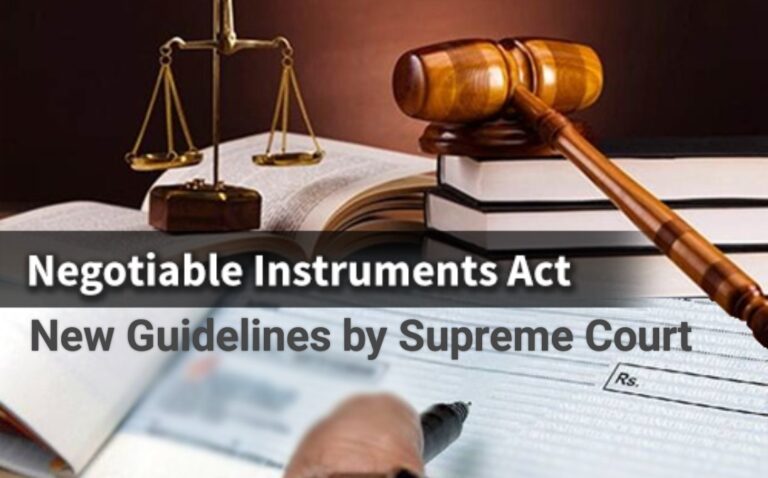The Hon’ble Supreme Court of India, in the landmark case Sanjabij Tari v. Kishore S. Borcar [2025 INSC 1158; 2025 LiveLaw (SC) 952], delivered on September 25, 2025 by Justices Manmohan and N.V. Anjaria, has laid down important directions to streamline and expedite proceedings under Section 138 of the Negotiable Instruments Act (NI Act), 1881.
These fresh guidelines aim to reduce delays, encourage early settlements, and improve procedural efficiency in cheque bounce cases. Below are the major takeaways:
1. Service of Summons through Digital and Alternative Modes
The Court emphasized that summons in cheque dishonour cases can be served not only by traditional methods but also through dasti service (by complainant) and electronic means such as email, mobile number, and WhatsApp.
- However, the complainant must file an affidavit authenticating the contact details provided for service.
- Every complaint must contain clear and necessary particulars to avoid procedural ambiguities.
2. Online Payment Facility for Early Settlements
District Courts have been directed to develop secure online payment options such as QR codes and UPI links.
- This system will allow accused persons to directly pay the cheque amount at the initial stage, encouraging early resolution and reducing litigation.
3. Standardized Complaint Format
To bring uniformity, the Supreme Court ordered that complaints under Section 138 NI Act must follow a standardized structure, including:
- Details of parties involved
- Cheque particulars
- Reason for dishonour
- Statutory notice details
- Cause of action
This will help courts handle cases more efficiently.
4. Revised Compounding Guidelines – Promoting Early Resolution
The Supreme Court revisited its earlier ruling in Damodar S. Prabhu (2010) regarding compounding of offences.
- It has reduced the cost percentages imposed earlier.
- If the accused makes full payment before recording of evidence, no cost or penalty will be imposed.
- This reform encourages timely settlements and reduces unnecessary trials.
5. Monitoring of Pending Section 138 Cases
The Court directed that the Chief Justices of Delhi, Bombay, and Calcutta High Courts form administrative committees to monitor cheque dishonour cases.
- District and Sessions Judges must establish dedicated dashboards and conduct monthly reviews to ensure speedy disposal.
6. Clarification on Section 269SS of the Income Tax Act
The Supreme Court also clarified that Section 269SS of the Income Tax Act, 1961 (restricting cash loans or deposits above ₹20,000) does not make a debt unenforceable in cheque dishonour cases under Section 138 NI Act.
Conclusion
The Supreme Court’s 2025 guidelines mark a significant reform in handling cheque bounce litigation in India. By introducing digital summons, online payment facilities, standardized complaint formats, revised compounding rules, and strict monitoring mechanisms, the Court has paved the way for faster, transparent, and settlement-friendly proceedings under the Negotiable Instruments Act.
